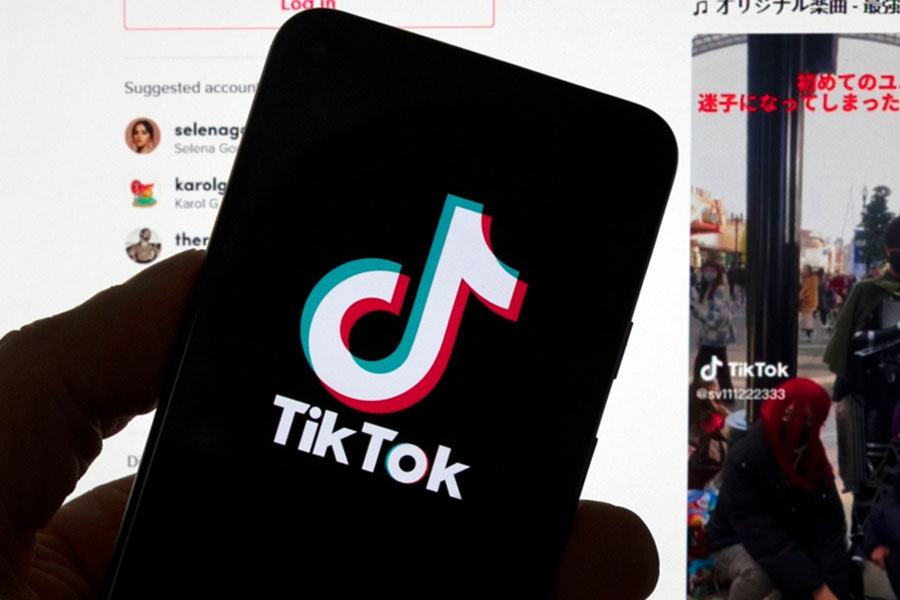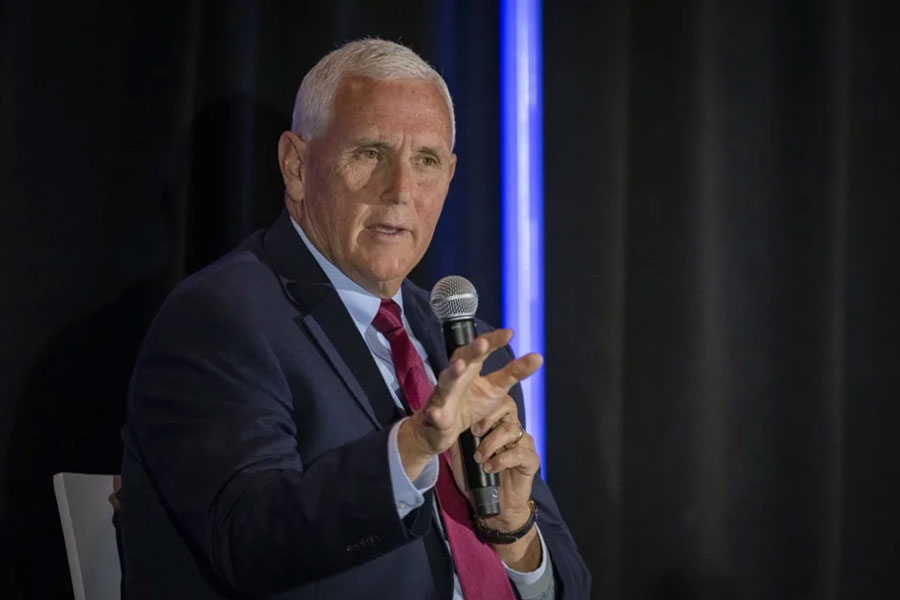
The TikTok logo is seen on a mobile phone in front of a computer screen which displays the TikTok home screen, Saturday, March 18, 2023, in Boston. (AP Photo/Michael Dwyer, File)
As TikTok battles for its survival in the United States, a courtroom drama is unfolding that could determine the fate of the wildly popular short video app.
With a looming deadline of January 19th, TikTok and its Chinese parent company ByteDance have taken their fight to the U.S. Court of Appeals, seeking to overturn a law that could ban the app from American shores.
In April, President Joe Biden signed legislation requiring ByteDance to divest TikTok's U.S. assets or face a complete ban. ByteDance argues that divestiture is neither feasible nor legal, challenging the law's validity.
They contend that this move marks a significant shift from the U.S.'s tradition of supporting an open internet, setting a troubling precedent for targeting specific platforms.
ByteDance and TikTok maintain that the proposed law not only threatens their business but also endangers free speech. "This law is a radical departure from this country’s tradition of championing an open Internet, and sets a dangerous precedent," they stated in their court filing. They emphasize that the law unfairly targets TikTok while ignoring other applications and U.S. companies operating in China that collect significant user data.
Concerns among U.S. lawmakers about potential Chinese espionage and data access have fueled the push for this legislation. The law passed swiftly through Congress, reflecting bipartisan support for stringent measures against foreign-owned apps.
However, TikTok's supporters argue that the law infringes on free speech rights. Lawyers for TikTok users who have joined the lawsuit insist that the absence of immediate national security threats is evident, given that TikTok is allowed to operate through the end of the year, even during a crucial election period.
ByteDance has revealed that negotiations with the U.S. government abruptly ceased in August 2022. Despite their efforts, including a proposed national security agreement to safeguard U.S. user data, the U.S. administration decided to pursue a ban.
ByteDance disclosed a redacted version of this 100-page draft agreement, highlighting their commitment to addressing security concerns. This draft included provisions for a "kill switch" that would enable the U.S. government to suspend TikTok if it failed to comply with the agreement.
TikTok’s legal team has expressed frustration with the U.S. government's stance, arguing that the administration is prioritizing an outright ban over finding a practical solution. They claim to have invested over $2 billion in efforts to protect user data, only to face an ultimatum of divestment or shutdown.
An email from TikTok's lawyers to the Justice Department made public on Thursday, criticizes the administration's preference for shutting down the app rather than continuing negotiations for a feasible agreement.
While the Justice Department declined to comment on the email, it has defended the legislation, citing critical national security concerns. The department maintains that the law aligns with First Amendment rights and other constitutional limitations, vowing to defend it in court.
The backdrop to this legal battle includes previous attempts by former President Donald Trump to ban TikTok and WeChat, which were blocked by the courts. The White House continues to emphasize national security concerns, advocating for an end to Chinese ownership of TikTok without necessarily banning the app.
The law also targets app stores and internet hosting services, barring them from supporting TikTok unless it is divested by ByteDance. This multifaceted approach underscores the seriousness with which the U.S. government views the issue.
As the January deadline approaches, the stakes are high. The upcoming court decision will not only impact TikTok but could also shape the future of how foreign-owned apps are regulated in the U.S. The outcome will be closely watched by millions of American users and tech companies worldwide.





